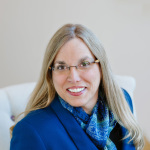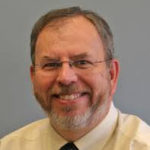This is the first in a two-part series resulting from a partnership between the Online Learning Consortium (OLC) and WCET (the WICHE Cooperative for Educational Technologies). These posts provide you timely insights from your peers and seek to obtain your feedback. Through a series of conference presentations, we literally asked, “What Keeps You Up at Night?” This post focuses on the responses to that question collected from small groups of attendees at two sessions in fall 2016. Part 2 will share the results of a more targeted discussion with a small group of attendees at an OLC Innovate 2017 session.
Kathleen Ives (CEO of OLC), Karen Pedersen (Chief Knowledge Officer at OLC), and Russ Poulin (Director, Policy and Analysis at WCET) wondered about ways in which our organizations could collaborate. We wanted to hear from you. Get your ideas.
To learn about the issues you face in your everyday work, we literally asked “What’s keeping you up at night?” At the fall 2016 convenings of OLC Accelerate and the WCET Annual Meeting, we used a modified form of “brain writing” to gather ideas from attendees to two questions.
We understand that this is sample only of those attending the sessions. It is not meant to be representative of the entire OLC and WCET memberships. Even so, we found it useful to obtain feedback from attendees in a very engaging format. Below is a summary of some of the top responses from those sessions.
Question 1: As a leader navigating the online/digital higher education space, what is the one topic that keeps you up at night?
- Compliance. Does institutional leadership understand the compliance issues with federal and state regulations. Do they understand the associated risks? Is the entire campus leadership and faculty on board?
- Accessibility. Are we able to meet the needs of the students requiring accessibility assistance? Are we meeting the regulatory requirements? What are those requirements? Can we work collectively to exert pressure on publishers, hardware, and software providers to do a better job?
- Growth and Sustainability. Will our enrollments continue to grow? Can we keep up with growth? How can we financially and structurally sustain the growth? What if we’re in an institution where overall enrollment is decreasing?
- Faculty Buy-in. How do we get faculty to participate and give the time necessary for quality courses? How can we better work with faculty? How can we help faculty before the institutions decides it is better to move forward without those who participate?
- Working Collaboratively across the Campus. How do we get buy-in from the leadership? How do we get collaboration between academic and support units to provide necessary student support? How do we increase the flow of communication across campus units?
- Faculty Development. What faculty development makes a difference in student learning? How can we keep up with changing technologies and methods?
- Ability to Innovate and Evolve Quickly. How can we best manage change? How do we keep up with technological evolutions and revolutions? How do perform change management, including the interpersonal aspects of change? How do we respond to the “too many options” problem?
WCET respondents mentioned compliance and accessibility issues more often than their OLC counterparts. OLC respondents tended to gravitate towards faculty development and buy-in issues.
Other interesting responses that did not receive as many mentions include:
- Improving student outcomes,
- Obtaining administrative buy-in,
- Curtailing academic cheating and dishonesty,
- Addressing the “regular and substantive” interaction expectations,
- Paying attention to the student experience,
- Maintaining quality courses, and
- Assuring privacy and data security.
A note about the responses: Participants could have written anything they wished in response to the question. We tried not to lead them in any direction. The classifications below are our own, but it was clear that there were seven topics that outpace all the others. We would like you to review these topics and let us know if they resonate with you.
Question 2: In 2025, what will keep you or your successor up at night?
We picked 2025, as it is in the future, but not the horribly distant future. It’s only a little over 6.5 years, 401 weeks, and 2,806 days away from the publication of this post. Looking back 6.5 years, we had not yet enjoyed the “Year of the MOOC” and Southern New Hampshire University enrolled fewer than 20,000 students. Things can change. Here’s what conference participants predicted for 2025:
- The Future of Higher Ed. What does the future of higher education look like? What will “doing it right” entail? What will be the impact of the alternatives to higher education, including new providers? This topic was mentioned more often by WCET than OLC respondents. Some good quotes:
- “What is the point/role of college? If you want to learn something, go online.”
- “Will we be competing with non-academic providers, like Amazon?”
- “Do we even need higher education or can people download “knowledge” directly to their brain?”
- Student Success. Do we need to redefine what a well-educated student looks like? What competencies will be relevant in 5 years? How do we educate people for jobs and a world that does not currently exist?
- Technology. How will technology evolve? What will be needed to maintain the technologies? How will we manage innovations, especially if they are increasingly outsourced? How to keep up with technology innovations.
- Funding Models. Given the pressures on higher education funding sources, especially in the public sector, how will higher education be funded? What new funding models are needed?
- Scalability. Will online and digital learning continue to grow? How do we scaling faculty and support systems to handle the increased demand and changes that future innovations will bring?
- New Curricular Models. What will be the impact of new credentials, shorter times to credit, shorter times to degree, ignoring the agrarian-based academic calendar, blended learning, and innovations we don’t even know about yet?
OLC participants and their WCET counterparts seemed to agree on many of these items except for “new curricular models.” That topic arose only in the WCET discussion.
Other interesting responses that did not receive as many mentions include:
- Determining the skills necessary for faculty development,
- Addressing social changes in an increasing online and disconnected student population,
- Adopting a “customer service” attitude,
- Sharing programs and resources across institutions,
- And these three insightful observations on what will keep them up:
- The unknown.
- Parking
- How to get me to retire!
Now It’s Your Turn. What Keeps YOU up at Night?
We greatly appreciate and value the perspectives our conference attendees provided during these sessions. We understand that these were small groups, so we wish to expand the conversation. While OLC and WCET serve slightly different audiences, there is much overlap. Our goal with the sessions was to understand how our two organizations could bring our collective resources to the table to support institutions and address issues YOU are facing on your campus today.
Do these topics resonate with you? Please provide your comments via this form with insights or perspectives you would like to share.
We would love to hear your answer to the question: “What keeps you up at night?”

Kathleen S. Ives has worked in online technology for over 20 years and is currently the Online Learning Consortium’s Chief Executive Officer and Executive Director where she oversees the organization’s strategic direction. Additionally, she serves as faculty for the Institute for Emerging Leadership in Online Learning (sponsored by Penn State and OLC), and serves on the EdSurge Advisory Group, the Executive Strategic Council for IMS Global Learning Consortium and on the Leadership Advisory Board for the Center for Learning Innovations & Customized Knowledge Solutions (CLICKS). Formerly, Dr. Ives oversaw all forms of alternative instruction at Quinsigamond Community College in Worcester, MA (distance learning, accelerated programming). She serves as adjunct faculty for graduate and undergraduate business programs at Wentworth Institute of Technology in Boston. Dr. Ives began her career at CBS and helped to develop the service that evolved into Prodigy. She then spent fourteen years designing and implementing consumer online information services, first at AT&T and then at Verizon where she spearheaded the development of the nation’s first online Yellow Pages product, now called superpages.com. Dr. Ives has degrees in communication, communication management, and organizational leadership from the University of California at Davis, the University of Southern California, Annenberg School of Communication, and the University of Phoenix-Online, respectively.

Karen Pedersen serves as the Chief Knowledge Officer for the Online Learning Consortium (OLC). In this role, she has responsibility to gather, curate and leverage the intellectual capital created by and disseminated through the organization to create and enhance services and resources provided to the OLC community. She works in five key areas including learning innovation, quality enhancement, community engagement and development, product development leadership, as well as publications, research, and policy.
Prior to joining the Online Learning Consortium, Pedersen served as the Associate Vice President for Extended Campuses at Northern Arizona University. In this role she was responsible for leading a system-wide enrollment management transformation as well as managing marketing, technology, and academic operations. She led a network of over 35 campuses in Arizona, developing new business and market opportunities, actively collaborating with and growing community college partnerships, as well as developing scalable, integrated and lean business processes/workflows. The scope of her responsibilities included coaching and mentoring 180+ full and part-time staff members in addition to supporting over 750 faculty members.
For eleven years Pedersen served as the Vice President for Professional Studies at Southwestern College (SC). In that role she was responsible for envisioning and building an online program from the ground up and launching over 25 innovative online programs. While there Pedersen expanded military partnerships and engaged in strategic infrastructure projects while successfully positioning her institution in an enrollment growth trajectory. SC participated in the Academic Quality Improvement Program (AQIP) through its regional accreditor (The Higher Learning Commission) and Pedersen participated in two strategy forums during her tenure. In addition, she served as an evaluator with the Kansas Award for Excellence and utilized the Baldrige Criteria for Performance Excellence in her operations.
Pedersen also held the academic associate and dean roles at Upper Iowa University’s Extended University for four years. In these roles she was responsible for curriculum development, enhancing learner success initiatives, as well as faculty hiring, training, and evaluation. She also built the foundations for an online operation and traveled internationally to develop partnerships in Singapore, Hong Kong, and Malaysia.
Prior to starting her administrative career, Pedersen served as a faculty member at the University of Nebraska at Kearney. She holds bachelor of science and master of science degrees from the University of Nebraska-Lincoln and a doctor of philosophy degree from Oklahoma State University. Pedersen has numerous international leadership experiences having worked collaboratively with the Indonesian National Police and the US government to provide professional expertise for a major distance education initiative as well as serving as an international keynote speaker.

Russ Poulin organizes WCET’s national policy and research activities, edits WCET’s Frontiers blog, coordinates WCET’s research efforts, and works on elearning consortia issues. He represented the distance education community in the U.S. Department of Education’s 2014 Negotiated Rulemaking process. Previously, he coordinated distance education activities for the North Dakota University System. He holds a Bachelor’s degree from the University of Colorado Denver and a Master’s from the University of Northern Colorado. Russ enjoys going to the films with his wife, Laurie.

